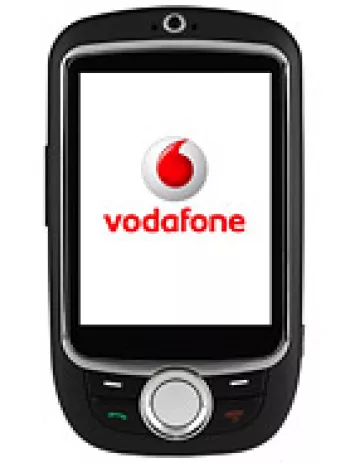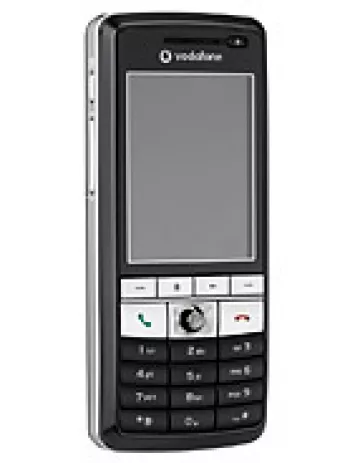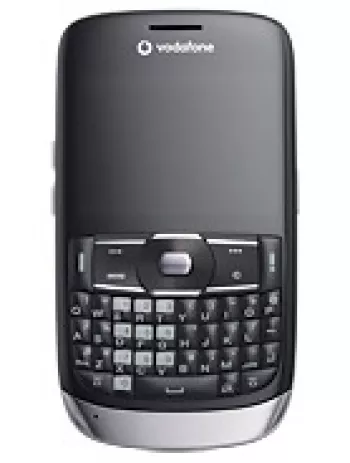
Overview of Vodafone V-X760
The Vodafone V-X760 was announced in March 2009 and is now discontinued. This feature phone was designed to cater to the needs of users who wanted basic yet effective mobile communication at an affordable price. It featured essential tools and functionalities suitable for everyday use, primarily targeting those who preferred physical buttons over touchscreen interfaces.
Design and Build
The V-X760 showcased a practical and compact design. With dimensions of 93 x 52 x 16 mm and a weight of just 84 grams, it was lightweight and easily portable. The body housed a Mini-SIM card slot, typical of the devices released during that era. The phone's construction emphasized simplicity and durability, making it a reliable choice for basic communication needs.
Display
The device was equipped with a 2.4-inch TFT display, supporting 65K colors. It offered a resolution of 240 x 320 pixels, resulting in a pixel density of approximately 167 PPI. Although the screen-to-body ratio stood at around 36.9%, it was adequate for viewing text messages, menu options, and basic images. This type of display was standard for feature phones at the time, providing all necessary visual information without unnecessary complexity.
Camera
The Vodafone V-X760 came with a 1.3 MP main camera capable of capturing basic quality photos and videos. While it did not boast high-end imaging specifications, the camera served its purpose for spontaneous captures and simple multimedia messaging, which was satisfactory for users at that time who did not require advanced camera functionalities. The absence of a front-facing camera was common for feature phones, as selfies and video calls were not a primary focus.
Memory and Storage
For memory and storage, the V-X760 supported a dedicated microSD card slot, allowing users to expand the phone's storage capacity and store more photos and other media. It featured a phonebook that could store up to 1000 contacts and enabled photocall, which was ample for ordinary usage. Call records tracked the last 30 dialed, 30 received, and 30 missed calls, reflecting the typical user behavior of that time.
Network and Connectivity
The V-X760 was equipped with GSM network technology, supporting 2G bands GSM 900/1800. It offered GPRS Class 10 for basic internet connectivity but lacked EDGE support. For local connectivity, the device featured Bluetooth capabilities, allowing for wireless exchange of data with other Bluetooth-enabled devices. However, it did not include WLAN or positioning features, such as GPS, which was typical for feature phones.
Battery and Power
The phone was powered by a removable Li-Ion battery, with a stand-by time of up to 180 hours and talk time of up to 3 hours. This battery life was suitable for daily use, given the low power requirements of the phone's features. A removable battery also provided users with the option to carry a spare battery for extended use during travels, a convenient feature appreciated during that period.
Audio and Miscellaneous Features
The device included a loudspeaker for hands-free calling and stereo FM radio for entertainment, a popular feature at the time. However, it lacked a 3.5mm audio jack, which might have been a limitation for those who preferred using standard earphones. Other features included SMS and MMS messaging support, a WAP 2.0/xHTML browser for basic internet browsing, and Java MIDP 2.0 support for running simple applications and games.
Conclusion
The Vodafone V-X760 was a functional and straightforward feature phone, primarily designed for basic communication needs. It appealed to users seeking reliability, portability, and essential features without the complexities of smartphones. Although it is now discontinued, the V-X760 remains a testament to the evolution of mobile technology, particularly during the transitional phase preceding the widespread adoption of smartphones.
Key Features of Vodafone V-X760
- Lightweight design weighing just 84 g (2.96 oz)
- Compact dimensions of 93 x 52 x 16 mm
- TFT screen with 65K colors for a vibrant display
- Expandable storage via microSD card slot
- Stores up to 1000 phonebook contacts with photocall feature
- 1.3 MP main camera with video capability
- Stereo FM radio for access to music and news
- Bluetooth connectivity for wireless data transfer
- Removable Li-Ion battery offering up to 180 hours of standby time
- Java support for running basic applications and games
Vodafone V-X760 Disadvantages
- Lacks EDGE support, limiting internet speed.
- Discontinued status, hence no official support.
- Screen-to-body ratio is relatively low (~36.9%).
- Low resolution screen with ~167 ppi density.
- Single 1.3 MP camera, which may produce low-quality images.
- No front (selfie) camera available.
- No 3.5mm headphone jack.
- No WLAN support.
- No GPS positioning capabilities.
- Uses a proprietary USB connector.
- Limited battery talk time (up to 3 hours).
View Also
More Phones
All Rights Reserved +13916 Phones © Mobilawy 2025

























